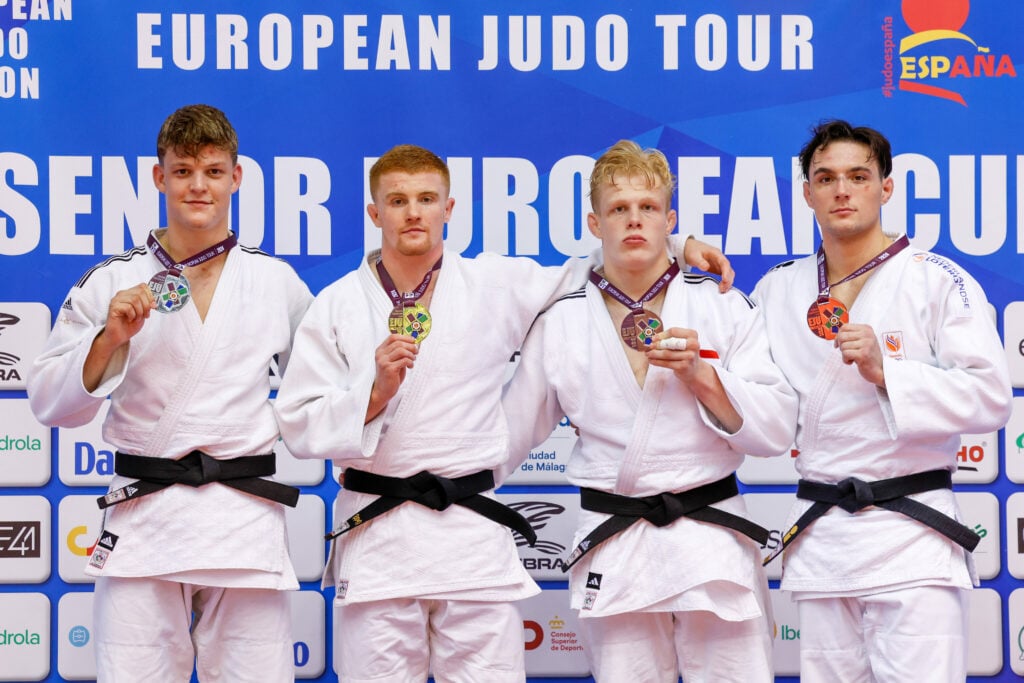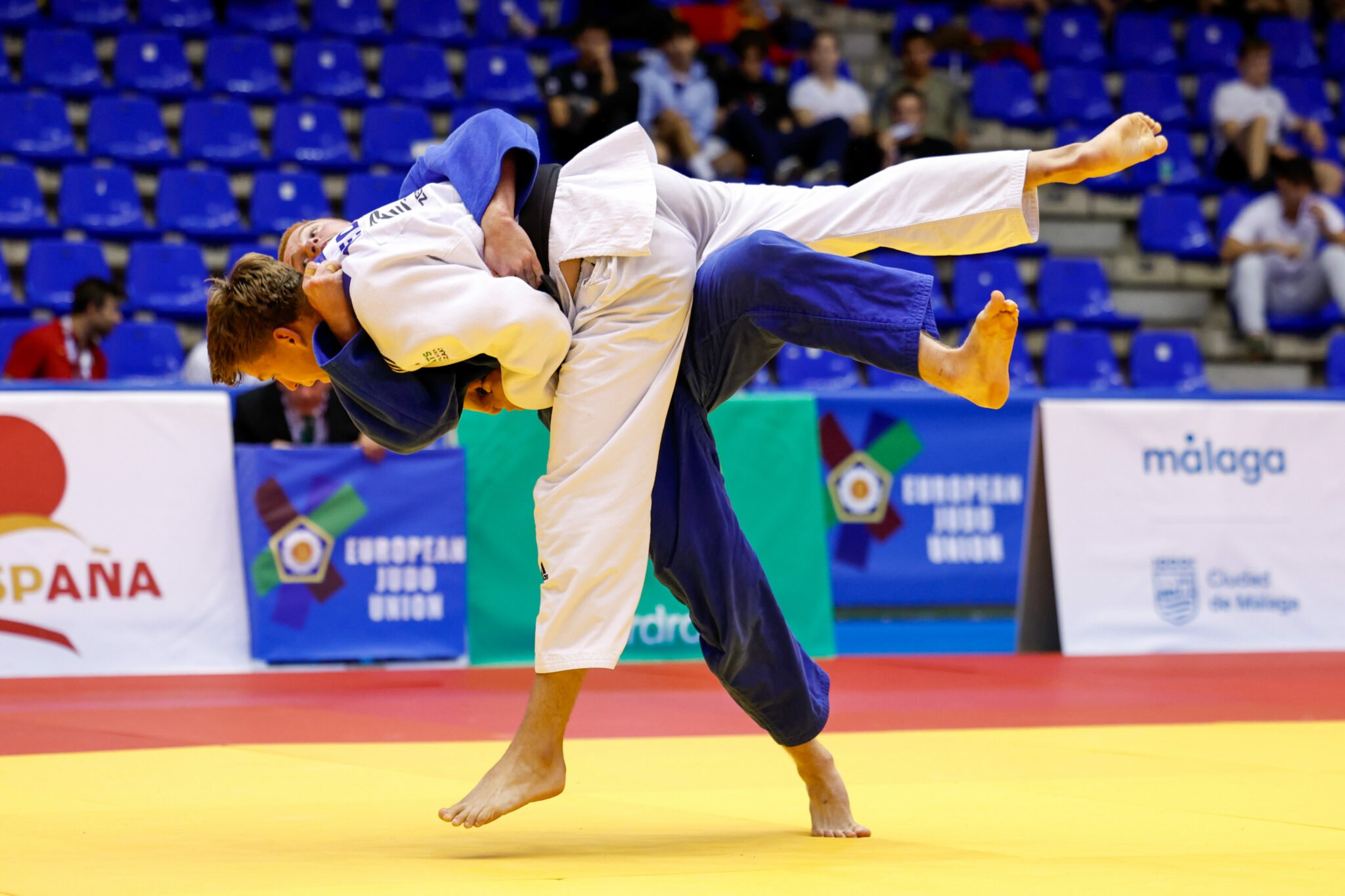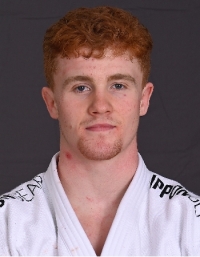No matter the event, interest is always piqued when a great win comes from a small nation. Athletes from areas with low populations of judoka, tend to have to make great sacrifices if they truly see themselves progressing through the terribly hard sport that is judo. A win is only a temporary celebration and a brief reward for years of hard work, day in, day out, and in the Malaga Senior European Cup, it was Bearach GLEESON’s time for glory, before he went right back to work.
The Team Ireland -90kg athlete came in to the event unseeded and without any pressure.
Going in to the competition I wasn’t too overwhelmed, I just wanted to focus on the first fight. I was relieved to get the first win, I scored in the final seconds and I played a bit safe. I’d actually fought him [SZTANKO Daniel (HUN)] earlier in the summer in Slovenia and he’d beaten me so it was good to get past this one.
Reflecting back, the opening contest is always the hardest, few rarely perform at their best as they’re shaking off initial nerves or finding their flow and breaking down that barrier.
I think that one of the reasons I didn’t feel too much pressure is that I’d already had the chance to go away and ask the questions ‘why am I going out first round?’ ‘what is it that is affecting me on the day?’ ‘how do I manage the small things?’ But I knew I’d done the hard training, I felt fit and strong and knew I could match everyone. I had no worries about winning a medal, I just wanted to do my judo and go with what I felt comfortable with.
Gleeson’s contests weren’t only small wins either, his techniques were colossal, pulling out his range of uchi mata, and covered ne waza as well within his five head to heads. Notably, there was a great team in the crowd supporting Gleeson, not only from Team Ireland, but also from the Camberley Judo Club where the Irish athlete is now based.
Even though we only moved there a year and a half ago, it feels like a family, we were there as a big team and you really don’t ever feel alone. We always had the support as Team Ireland and because we are a small team we are really close knit and are with each other no matter what. In Camberley, our training has definitely changed and I think it’s made a big difference for me, the volume of randori is greater and I can go in to competition knowing that I’ve done just as much as everyone else.
It can be limited in small nations but Camberley is an international club and has a good number in most of the weight categories, for me it’s good that we have 90s and 81s players, and on top of that there are visitors a lot of the time. I want to say thank you to Luke Preston, the head coach there and of course was one of the voices cheering me on.
We have great coaches, and I have to say the support that we have from them is one of the reasons we are here, even in your toughest times, they’re there to tell you that it’s just matter of time. Judo is a tough sport, it is an individual sport and a lot rests on you and the work you put it, and it can get lonely at times, so the team around you is important.
More on the day itself, we hear a lot about ‘fighting to win and fighting not to lose’, which Gleeson can agree made a huge difference to his gold medal-winning performance.
It’s a great feeling, it’s positive and even in the semi final, I went down a waza ari in the opening seconds and I didn’t feel knocked by it, I know I’m fit, strong and I know I can stick at it, I just wanted to fight with heart and do my judo, so it was a great feeling to be able to recover. Then the final, that was just incredible, and walking off to Paul [Green] was a great moment. I really want to thank Nathon [Burns – National Lead Performance Coach for Team Ireland, former international athlete] as well, he has really stuck with us even when things haven’t been going so great.
Sometimes it just takes one really fantastic performance to set the ball in motion, and get over the hurdle that has been blighted by stress, it would appear Gleeson is a prime example.

Judoka
Author: Thea Cowen





